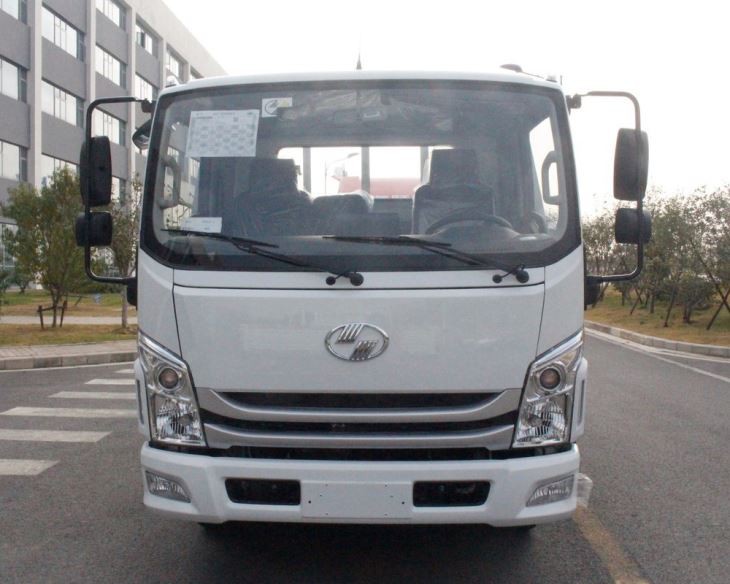Oil tank trucks are essential vehicles in the transportation of petroleum products. They are specifically designed to ensure safe and efficient delivery of fuel to various locations, from gas stations to remote construction sites. In this article, we will delve deep into the world of oil tank trucks, examining their types, features, benefits, regulations, and more.
What is an Oil Tank Truck?
Oil tank trucks, also known as fuel tankers, are specialized vehicles created to carry liquefied petroleum products. Their design includes a large cylindrical tank mounted on a truck chassis that can hold various types of oil, including gasoline, diesel, crude oil, and other petroleum derivatives.
Key Features of Oil Tank Trucks
- Tank Construction: Typically made from steel or aluminum, ensuring durability and resistance to corrosion.
- Tank Sizes: Available in various capacities, often ranging from 1,500 to 11,600 gallons.
- Safety Features: Includes emergency shut-off valves, vapor recovery systems, and external placarding for hazardous materials.
- Loading and Unloading Systems: Equipped with pumps, hoses, and meters for efficient transfer of oil.
Types of Oil Tank Trucks
Understanding the different types of oil tank trucks is essential for choosing the right one for the job.
1. Vacuum Trucks
Vacuum trucks are designed to transport liquids, sludges, and hazardous materials, using a vacuum system for loading and offloading. They are versatile and can handle various liquid waste products.
2. Pressure Tankers
Pressure tankers are built to transport gas or liquids under pressure. This type is suitable for transporting LPG and chemicals and is commonly used in various industries.
3. Inline Tankers
Inline tankers feature a design where tanks are integrated into the truck’s chassis. They are commonly used for short-distance fuel delivery.
4. Double-Hulled Tankers
Double-hulled tankers have an additional layer of protection, significantly decreasing the risk of spills in the event of an accident. They meet stricter environmental regulations as a result.
The Importance of Oil Tank Trucks in the Industry
Oil tank trucks play a vital role in various industries, including construction, agriculture, and transportation. They are essential for the following reasons:
1. Efficient Fuel Distribution
Oil tank trucks enable the timely delivery of fuel to various sectors, helping machinery and vehicles operate smoothly.
2. Supporting Infrastructure Development
Construction sites frequently require a reliable fuel supply for heavy machinery, and oil tank trucks cater to this need.
3. Emergency Response
In disasters or emergencies, oil tank trucks ensure that critical operations can continue, supplying fuel where it is needed most.
Regulations Governing Oil Tank Trucks
Transporting oil products comes with strict regulations to ensure safety and environmental protection.
1. DOT Regulations
The U.S. Department of Transportation (DOT) has specific rules regarding the transport of hazardous materials, emphasizing the need for proper labeling and handling procedures.
2. Spill Prevention Measures
Companies must implement spill response plans and ensure their vehicles meet certain safety criteria to minimize potential hazards.
3. State Regulations
In addition to federal laws, individual states may have their regulations regarding oil transportation, requiring additional compliance measures.
Choosing the Right Oil Tank Truck
When selecting an oil tank truck, several criteria must be considered:
1. Capacity Requirements
Determine the amount of oil you need to transport and choose a truck with appropriate tank size to meet those needs.
2. Type of Oil
Consider the specific type of oil you will be transporting, as some trucks are better equipped for certain liquids.
3. Route Considerations
Examine the routes you’ll be traveling, including weight restrictions and road conditions that may impact your choice.
Practical Examples of Using Oil Tank Trucks
Here are some scenarios where oil tank trucks are commonly utilized:
1. Fuel Delivery to Gas Stations
Oil tank trucks are regularly used to deliver fuel from refineries to gas stations, ensuring that consumers have access to necessary gasoline and diesel products.
2. Agriculture Equipment Refueling
During harvest season, oil tank trucks serve farms by providing timely refueling for heavy machinery, minimizing downtime.
3. Construction Site Fuel Supply
Construction projects rely on oil tank trucks to supply fuel for equipment such as excavators, bulldozers, and generators, ensuring continuous work progress.
Maintenance Tips for Oil Tank Trucks
A well-maintained oil tank truck is crucial for safe and efficient operations. Here are some maintenance tips:
1. Regular Inspections
Conduct routine inspections of the tank, hoses, pumps, and valves to ensure they function properly and meet safety standards.
2. Schedule Preventative Maintenance
Engage in regular servicing of the vehicle and tank, including checking for leaks and cleaning components to prevent blockages.
3. Employee Training
Ensure that all operators are trained in safety procedures and understand the mechanisms of the truck to handle emergencies effectively.
FAQs About Oil Tank Trucks
1. What materials are oil tank trucks made from?
Most oil tank trucks are constructed from steel or aluminum, chosen for their strength and resistance to corrosion.
2. How often should oil tank trucks be inspected?
Regular inspections should be performed at least once a month, with thorough checks conducted annually or as per regulatory requirements.
3. Are there different regulations for transporting crude oil vs. gasoline?
Yes, regulations can vary based on the type of oil being transported, with stricter safety measures typically imposed on hazardous materials like crude oil.
4. Can oil tank trucks be customized?
Yes, many manufacturers offer customization options to address specific needs, including tank size and additional safety features.
5. What are the consequences of oil spills during transportation?
Oil spills can result in severe environmental damage, legal liabilities, and costly clean-up efforts, hence the need for strict adherence to regulations.
6. How do oil tank trucks ensure safety during transport?
Oil tank trucks are equipped with safety features such as emergency shut-off valves, spill containment systems, and require trained operators to minimize risks.





